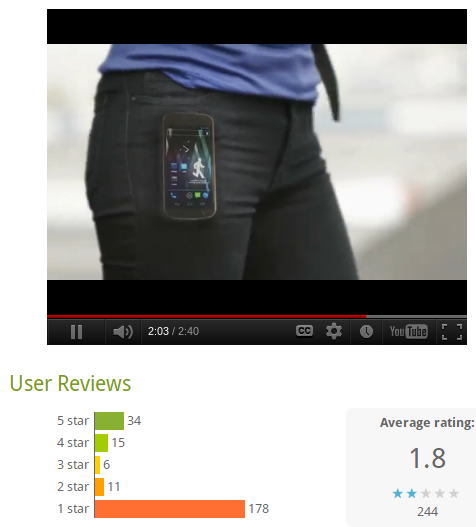
Microsoft gives back to Android, but users say 'no thanks'
Thanks to some smart lawyering or perhaps fears CEO Steve Ballmer will show up unannounced, Microsoft has negotiated envious patent fee payments from nearly all major Android licensees. So there's something fitting about the software giant giving a little something back to Android, by way of an exclusive app -- well for now -- on{X}. Or perhaps it's a Trojan Horse to undo Android phones, chopping up performance or draining battery life. Or maybe Microsoft sees Android users as easy beta testers, considering the more rigorous standards for getting into Apple's App Store than Google Play.
One thing is certain: Early on{X} users despise the app, which has some of the worst reviews you'll see at Google Play. As I post, the app has average rating of 1.8 stars out of five. Among the 244 reviewers, 178 give the app a single star. Ouch! I had planned to grab this one, which is available in beta, but skipped after seeing the scathing response.
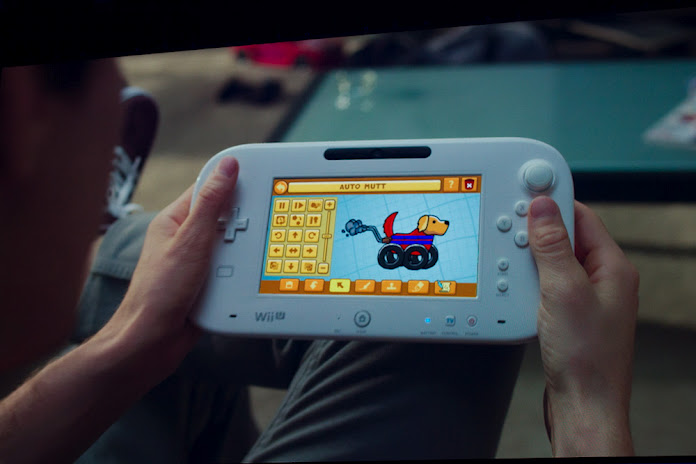
Nintendo says Wii U will revolutionize the living room, we hope so
The stage is set at the Nokia theater. The large screen in the middle of the stage flickers with the logo of Nintendo before the familiar face of Shigeru Miyamoto, the father of Mario and Zelda, shows up with his pixie-like smile and innocent glee. Nintendo's opening act for today's E3 Expo press conference -- the Wii U update of the Gamecube classic Pikmin in Pikmin 3, setting the tone for the entire presentation.
This conference is about the games first, hardware accessories are a far second thought. The features of the Wii U hardware are only mentioned by Nintendo of America President Reggie Fils-Aime, by saying "The Wii U will have YouTube, Hulu, Netflix, Amazon Video, but you can find out more about the console later, let's do a rundown of the new GamePad and get back to what's important, the games!"
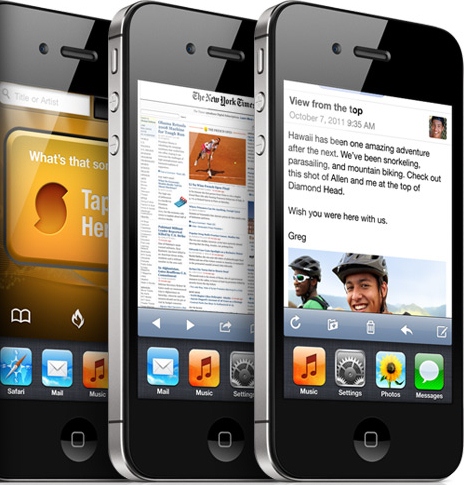
iPhone market share heavily depends on carrier subsidies
First in a series. Recently, there have been some articles stating that carrier subsidies may pose a risk to Apple. But before we accept or reject this assertion at face value, it would be prudent to find out just how much of an impact they have. We can do this by delving into a statistical analysis to isolate the key drivers of the iPhone's country-wise market share. So let's dive right in.
To start off with the analysis, we need to create a shortlist of a few key drivers that could have a major impact on the iPhone's market share. If these inputs do not have much of an impact, then the analysis would show us as much, so this initial shortlist doesn't have any bearing on the actual outcome of the analysis. My shortlist:

Say, iPad idolaters, don't write the laptop's epitaph just yet
May you live in interesting times. It’s an ancient curse. Or is it a blessing? There are volumes devoted to that age-old issue. In my world, though, there’s nothing gray about this topic. I get paid to answer questions, so interesting times are a blessing. Straight up. When clients don’t have any questions, now that’s a curse.
These are blessed times we live in, my friends. At least it is in my world. It’s hard to believe that it’s only been two years since Apple sold the first iPad. The year before, the tech world marveled at the vitality of the PC. Incredibly, shipments grew in 2009, defying gravity at a time when the rest of the economy seemed to be in a free-fall. My, how things have changed.

BetaNews giveaway: One year of premium Safe Shepherd 'Privacy-as-a-Service'
Venture-backed startup Safe Shepherd is a service we can really get behind. Users sign up and enter their personal information (personal names or aliases, email addresses, phone numbers, mailing addresses, etc.) into a profile, and Safe Shepherd locates that information on data broker websites and then erases it.
It helps protect your information against sites like BeenVerified.com, Radaris, Spokeo, and RapLeaf, which scrape whatever data they can find and sell it to marketers, or even worse, to potential identity thieves.
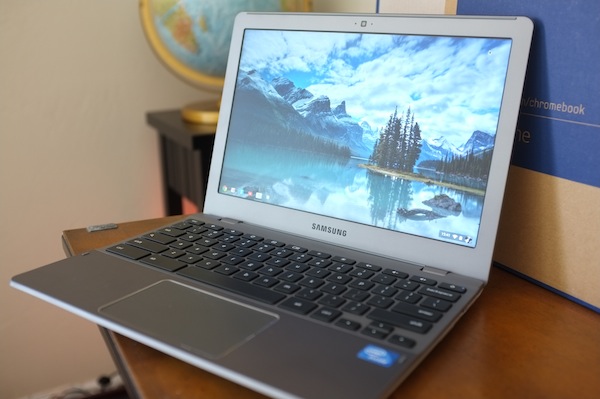
Samsung Series 5 550 Chromebook first-impressions review
Today, Google and Samsung officially launch the second-generation Chromebook, starting with the Series 5 550, which like its predecessor comes in WiFi-only and 3G combo models. I had the pleasure of using the new Chromebook for the past week as my only PC. The overall user experience is surprisingly satisfying and refreshing. In a computer market dominated by Mac and Windows, Chromebook is freedom from duopolies that define the experience within walled gardens and around desktop applications. But changes introduced with Chrome OS 19 make the user experience much more desktop-like, as Google cedes some of the browser motif for familiarity and usability, with multitasking being high among the reasons.
If you read no further, the answer to your question is this: Yes, you can use Chromebook Series 5 550 as your primary, and only, PC. Google has succeeded offering online and offline capabilities balanced to most computing needs, while keeping cloud benefits primary but seamlessly integrated. For two months last summer, I used the original Samsung Series 5 Chromebook as my primary PC, in the first weeks and as my only one later on. I'll repeat the experiment at least through the end of June, and I might not go back -- strange, considering new OS X and Windows versions debut within months. That commitment says much about my positive first impressions.
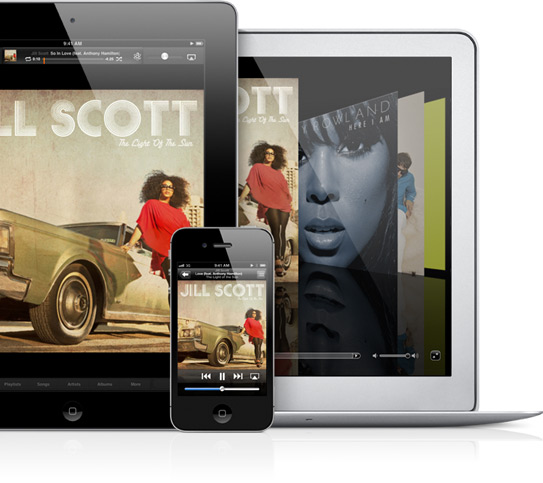
Is Intel Inside iPad, iPhone a pipedream?
Intel CEO Paul Otellini told investors this month that Apple could build its iPad and iPhone lineup on the Atom family of microprocessors any time it wants to. And he’s going to do everything in his power to make that prospect so enticing that Apple can’t refuse. Pipedream? Not hardly.
Now, I understand why some of you would consider this to be pure fantasy. Intel has been trying to pry its way into the smartphone and tablet markets for five years now, and until this year the company has had little to show for it.

Smartphones put privacy on the tsunami hazard map
Now, finally, the tide of public opinion on Internet privacy begins to flow in the other direction. Consumers are becoming more hesitant to share their data and are less tolerant when those with access to their data violate trust. That presents a tremendous threat to some of the titans of our day -- and an equally monstrous opportunity for others. Apple, Google, are you listening?
Honestly, I’m amazed that the issue was ever able to germinate and flower, particularly here in the United States, a country that distinguishes itself on the right to privacy. And a country that spent much of the last century wringing its collective hands over the Orwellian nightmare that awaited us down the road of technological advancement.

Fukushima Daiichi requires a Manhattan Project approach to avoid another nuclear accident
This is my sixth column about the Fukushima Daiichi nuclear accident that started last year in Japan following the tsunami. But unlike those previous columns (1,2,3,4,5), this one looks forward to the next Japanese nuclear accident, which will probably take place at the same location.
That accident, involving nuclear fuel rods, is virtually inevitable, most likely preventable, and the fact that it won’t be prevented comes down solely to Japanese government and Tokyo Electric Power Company (TEPCO) incompetence and stupidity. Japanese citizens will probably die unnecessarily because the way things are done at the top in Japan is completely screwed up.

Is Apple right to ban Airfoil Speakers Touch?
If you want a gander at one of iOS 6's new features, just ask developer Rogue Amoeba. Apple unceremoniously pulled Airfoil Speakers Touch, which has been in the iOS App Store since 2009. In the past, the company has refused apps or pulled others that compete with Apple repeat functionality iOS offers. The ban hints at streaming capabilities coming in the next version, while raising questions about appropriateness or fairness. Hence the question to you: Is Apple right to ban Airfoil Speakers Touch?
"Today, we’ve been informed that Apple has removed Airfoil Speakers Touch from the iOS App Store", CEO Paul Kafasis says. "We first heard from Apple about this decision two days ago, and we’ve been discussing the pending removal with them since then. However, we still do not yet have a clear answer on why Apple has chosen to remove Airfoil Speakers Touch. Needless to say, we’re quite disappointed with their decision, and we’re working hard to once again make the application available for you, our users." Apple had already approved the removed version.
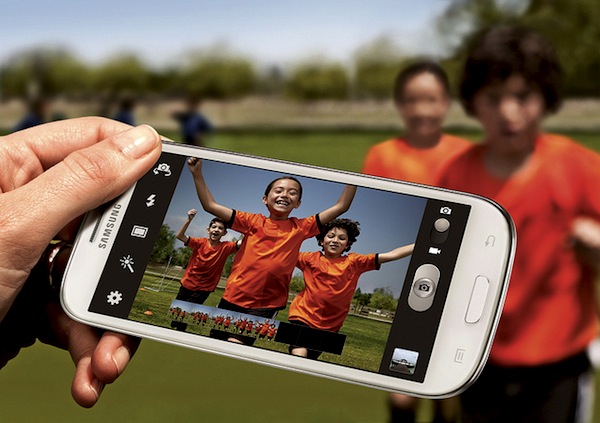
Who will buy Samsung Galaxy S III?
Samsung starts selling its third-generation S Series smartphone next week -- May 29, although some locales are expected to get it a day earlier (if not sooner). Our BetaNews poll, "Will you buy Samsung Galaxy S III", has enough responses -- 2,361, as I write -- to report results. Cut to the point: 36.59 percent of you won't buy the S3. At least among our tech community, there is huge interest in the smartphone, which is now available for preorders here, including Amazon.
Some of you have preordered, or will do so: 15.37 percent. Another 32.57 percent plan to order within 3 months and 9.45 percent within 6 months. Those willing to wait are likely to pay less, as national cellular carriers offer Galaxy S 3, albeit locked. The pricier, unlocked models are carrier and contract free. The poll results corroborate last week's report of 9 million preorders. In the United Kingdom, Carphone Warehouse reports strong preorder demand for the S3.

Google+ will continue to grow whether people actually use it or not
With Facebook now public and sitting on a huge pile of cash, let’s turn the conversation to the social network’s most pressing competitor, Google. Google and Google+ don’t appear to present much of a threat to Facebook, but the game board was reset on Friday and tactics at both companies will change accordingly. Now Facebook has to find a way to grow revenue and users and will increasingly bump up against Google’s huge advantages in search and apps. For Facebook to achieve its goals, the company will have to enter both spaces with gusto.
Google has learned how to leverage its strengths and suddenly one of those strengths is Facebook’s success. Now that Facebook is a $100 billion company, it doesn’t hurt Google to be number two in that space. Who else is? Pinterest? Instagram? Twitter? None of those services offer a full-fledged social network for those who do want a Facebook alternative, and some people will.

Six lessons I learned about writing software
From independent software developers to the enterprise, everyone is looking for ways to improve software development, increasing productivity while not sacrificing performance. Software technologies continue to change, but have programmers really found the real keys to faster development cycles, more reliable software and improved performance?
While it is obvious we have more powerful software today, this does not mean we have better software today. As it becomes more complex, there are more things that can go wrong. In the old days, software was often written by a single programmer, while today software often is written by teams. The complexity alone of trying to get a team of programmers to work together is challenging enough, but add to this the size and scope of some applications that can be hundreds of thousands of lines of code, if not possibly in the millions of lines of code, and you can have a veritible nightmare trying to put it all together. Few trades today require so much attention to details at such a large scope as does programming.

Smart technology procurement starts with identifying what you need
First in a series. Many IT professionals know how difficult major technology purchases can be. Projects like picking a new CMS system, selecting a data center or replacing helpdesk software are relatively infrequent. This means employees are not well-practiced with determining and organizing requirements or the product selection process.
They are often biased towards those products they already know, and may not be familiar with some others competing in that market segment. Throw aggressive sales people and tight deadlines into the mix and you have the recipe for a technology purchase that is decidedly not optimized for the business.
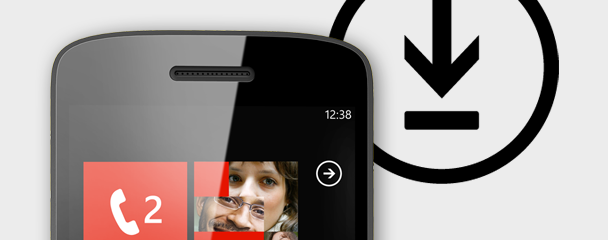
Windows Phone reaches for the bottom
Sometimes, BetaNews readers really amaze me. Three days ago I posted "The measure of Windows Phone failure is..." based on comScore US smartphone OS market share data. To me, it was a trivial story, because I was days late writing about the numbers and posted it more as filler, being short writers (because of holidays and emergencies). More than 220 comments later, Windows Phone is hot-topic of debate among you.
Yesterday, Gartner released first-quarter global phone sales data that puts to end any real debate about Windows Phone's present: Combined smartphone OS share with Windows Mobile was 1.9 percent, down from 2.6 a year earlier but flat sequentially. The quarter-on-quarter data suggests, in context of Nokia Lumia launches, that Microsoft's mobile operating systems have finally hit bottom -- that perhaps the things won't get much worse and could finally improve.
